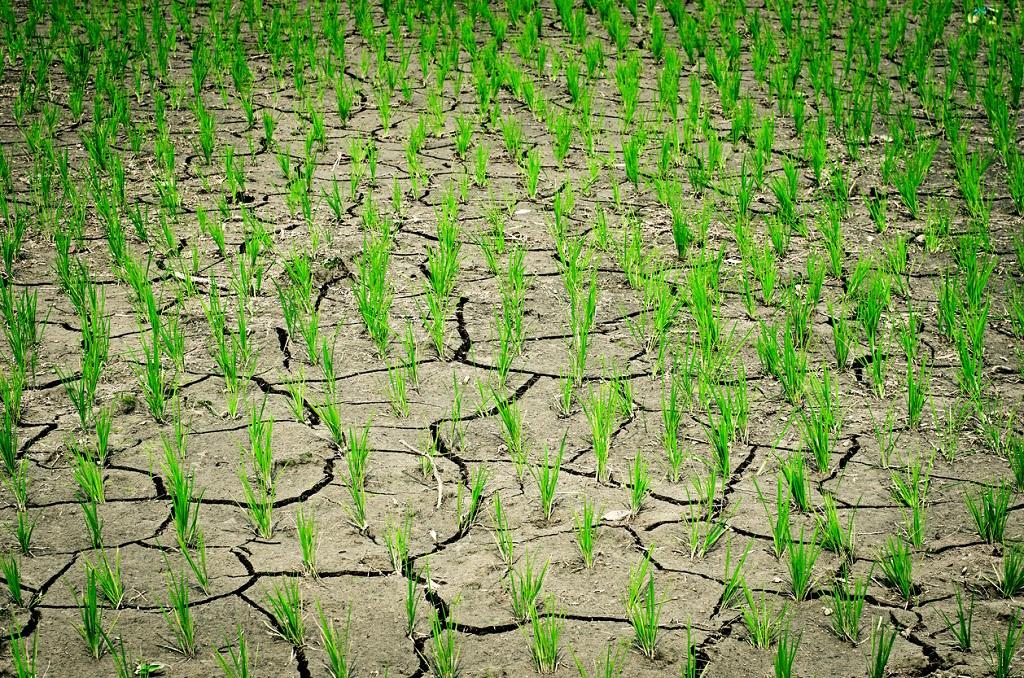

State agriculture department has advised farmers to opt for less water-intensive alternatives like maize



Changing rainfall patterns during the ongoing monsoon raised concerns among paddy farmers in many parts of Bihar.
While scanty rains in June-July badly hit paddy cultivation in the state, moderate to heavy rains in August brought relief to some farmers, who could complete the much-awaited transplantation of paddy seedlings.
However, farmers in over half a dozen districts are not lucky, as monsoon rains disappointed them in August as well. Deficient rainfall hindered paddy transplantation in these districts. Uncertainty over good rains in the remaining days of August persists due to a prevailing weak monsoon system weak.
Paddy transplantation in districts of Gaya, Nawada, Aurangabad, Nawada, Sheikhpura, Jamui and Nalanda was badly hit due to deficient rainfall. Chief Minister Nitish Kumar conducted an aerial survey on August 19 and directed top officials to provide all necessary help, including diesel subsidies, to ensure uninterrupted power supply for 16 hours to farmers for irrigation.
An official release from the CM office said Kumar asked concerned district officials to be alert and closely watch the situation.
As of August 20, 2023, 93.5 per cent of the transplantation has been completed and 6.5 per cent is left, according to state agriculture department officials. The department has targeted cultivation in 3.59 million hectares of paddy this year. But saplings in only 3.35 million hectares could be transplanted by the third week of August.
Farmers who completed transplanting paddy seedlings are also worried about sustaining their crops. Deficient rains in the coming days will heavily impact farmers.
“There were no rains in the early monsoon in mid-June, followed by some rains and a long dry spell in July. Heavy rains in early August were a significant relief as we could complete paddy cultivation. We badly need rain for healthy crops, or we will struggle to save paddy,” Baldeo Prasad Sharma, a farmer in Pali, Patna district, said.
Sharma’s fear is not baseless as the eyes of farmers across the state are glued on the sky, anticipating rains. Heavy rains in the coming days are critical to save paddy, a rainfed crop,” said Birendar Yadav from Gaighat in Muzaffarpur district.
Scientists of Bihar Agriculture University said the best time to transplant paddy seedlings is from June 20 to July 15; after that, farmers can transplant paddy by July end or, at maximum, by the first week of August. But the paddy transplanted after August 15 is not good in terms of quality or yield.
Till August 20, 2023, rainfall in Bihar was nearly 30 per cent less than normal, said scientists at the India Meteorological Department (IMD), Patna. The normal precipitation from June 1 to August 20 is 680 millimetres (mm), but so far, the eastern state has recorded just 470.8 mm, according to official data.
In June and July, the state recorded a 48 per cent rainfall deficit this year.
Sanjay Kumar Agarwal, agriculture secretary, said the department advised farmers to opt for less water-intensive alternatives, like maize. Agarwal said the department had distributed maize seeds to farmers in rain-deficient districts free of cost.
The situation in Gaya is bleak. Normal precipitation recorded in the state from June, July to August is 582.03 mm, but Gaya recorded 350.83 mm, which is 39.70 per cent deficit, according to information provided by a district official.
IMD has, however, forecast heavy rainfall in some districts of north Bihar after August 22. This is a big relief for farmers.
Abdus Sattar, a senior scientist at the Centre for Advanced Studies on Climate Change, Rajendra Prasad Central Agricultural University, said the rainfall pattern had significantly changed in the state due to the changing climate. “This will continue and is likely to badly affect kharif crops. Farmers will have to go for alternative crops”.
We are a voice to you; you have been a support to us. Together we build journalism that is independent, credible and fearless. You can further help us by making a donation. This will mean a lot for our ability to bring you news, perspectives and analysis from the ground so that we can make change together.

Comments are moderated and will be published only after the site moderator’s approval. Please use a genuine email ID and provide your name. Selected comments may also be used in the ‘Letters’ section of the Down To Earth print edition.